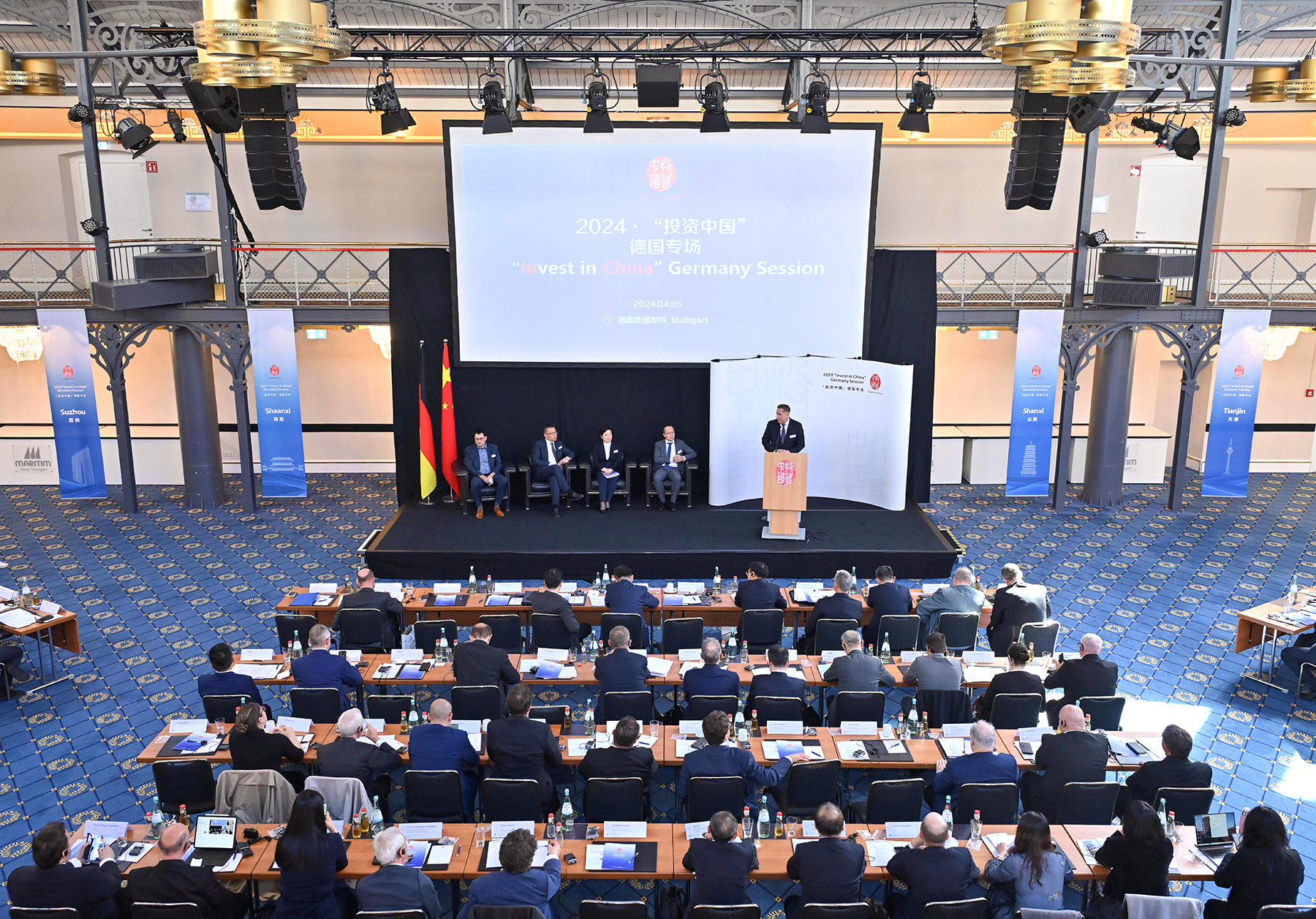More opportunities to expand global competitiveness

China's status as a global leader in green energy, artificial intelligence and the digital economy has brought new opportunities for German companies to invest in the local market, according to attendees at a recent "Invest in China"-themed roundtable meeting in Munich, Germany.
The meeting was chaired by Ling Ji, vice-minister of commerce and China's deputy international trade representative, and attended by Tong Defa, Chinese consul-general in Munich, representatives from the Chamber of Commerce and Industry for Munich and Upper Bavaria, and executives from six major German companies, including BMW, Siemens, Infineon and Knorr-Bremse, and two "hidden champion" enterprises.
Ling said China's economy is steadily advancing, with a trend of long-term improvement. Noting that investing in China is a common need for Chinese and German enterprises and helps German companies enhance their global competitiveness, he added that development of the digital economy and green economy is accelerating; the middle-income group is expanding continuously; and large-scale renewal of equipment and replacement of consumer goods will unleash substantial market demand.
Germany-based KSB, a global leading supplier of pumps, valves and services established in 1871, has explored its own path in pursuing localization and is a typical example of continued growth in China over the past 30 years. Stephan Bross, the company's chief technology officer, said in a recent interview with Chinanews.com that China is a market with high technological challenges, and with the country's cultivation and development of new quality productive forces, KSB will accelerate the market's digital layout.
KSB Shanghai Pump, a joint venture between KSB and Shanghai Electric established in 1994, is dedicated to fields such as energy, industry, municipal services and water conservancy. It has become one of the enterprises with the widest range of products and the highest technological level in pump and valve manufacturing and solution provision in China.
"The current Chinese market presents significant technological challenges," Bross said. "It has high technological requirements, which means that in order to survive and thrive in this fiercely competitive market, companies need to maintain a leading technological position."
The Asian market is an important part of KSB's global layout. In 2023, the company's sales performance in China accounted for 12 percent of its entire group performance. Bross noted that KSB is pursuing localized development in various important regions, adding: "We are localizing production in the Chinese market to meet the needs of Chinese customers, while also helping us further expand into the Southeast Asian market."
In July, KSB plans to establish a new intelligent factory in Shanghai with an investment of 20 million euros ($21.73 million) — the largest investment project for KSB Shanghai since its establishment.
Meanwhile, in its annual business confidence report for 2023-24, the German Chamber of Commerce in China released statistics based on responses from its 566 member companies, showing that more than 90 percent of German companies in China plan to continue their operations, and more than half plan to increase their investments. The report also indicates the economic relationship between Germany and China has provided millions of job opportunities for both countries.
China's vast consumer market, advanced supply chain infrastructure and increasingly strong innovative position make it one of the most important markets for German companies, which are taking action to strengthen the diversification and localization of their supply chains and business operations.
Despite the increasingly challenging global market environment, the report said 91 percent of the surveyed companies have no plans to leave China, 78 percent of them expect their industries to continue growing over the next five years, and 54 percent plan to increase their investments.


